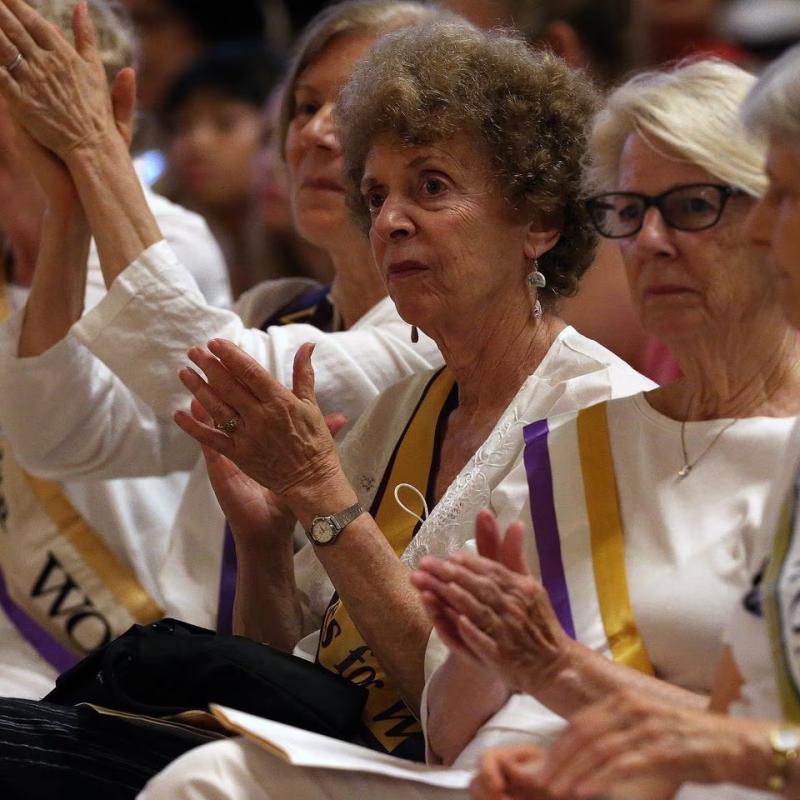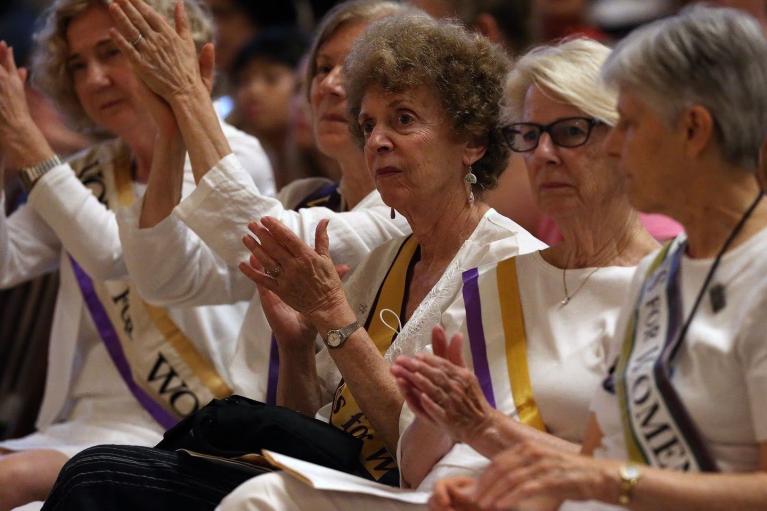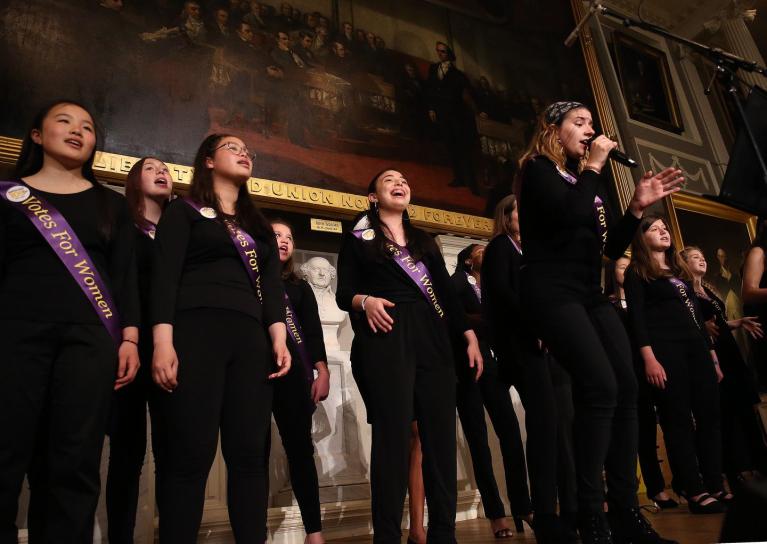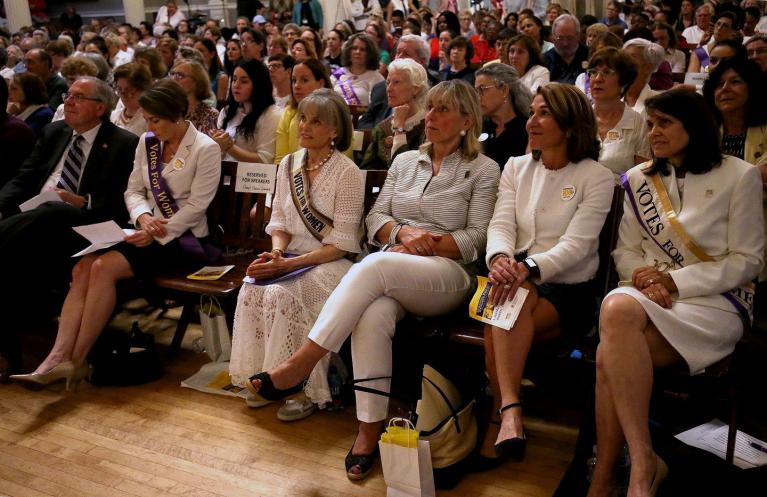Editor's note: the following article originally appeared in The Boston Globe, written by Alison Kuznitz.
They stood at a wooden podium in historic Faneuil Hall, many wearing all-white dresses strewn with simple sashes trimmed in gold and purple and emblazoned with a message of gleeful triumph: “Votes For Women.”
As they ascended the stage, one after another in the fashion of the early 20th-century suffragists, they encountered relics of a bygone era – paintings containing only white male lawmakers, deciding the fate of all Americans.
The modern-day activists and elected officials reveled in the bravery of their matriarchs, forming a passionate commemoration of Massachusetts ratifying the groundbreaking 19th Amendment on June 25, 1919.
“We will not move back in this Commonwealth. We will only work hard to move forward,” Lieutenant Governor Karyn Polito said during a series of brief speeches. “I think about this being a moment where we need to prepare the next generation – our children – and to prepare our daughters around the next 100 years.”
The Suffrage Centennial Kickoff Celebration on Tuesday evening was presented by The Women’s Suffrage Celebration Coalition of Massachusetts and the Greater Women’s Vote Centennial, an offshoot of the Mayor’s Office of Women’s Advancement. It marked a launching pad for additional educational programming this year, oriented around civic engagement and equality.
Attorney General Maura Healey called for women to re-energize themselves and “double down” on battles that are still being fought. Protecting women’s reproductive rights, ending voter suppression, and promoting gender equality in the workplace are all complicated issues that can be remedied with the perseverance of powerful movements, she said.
“I call upon everyone in the state to lift their voices,” Healey said. “Now more than ever, we need to think about on whose shoulders we stand.”
She received a standing ovation and a roaring round of applause from more than 300 audience members, which included women, young girls, and men. Throngs of attendees had likewise worn suffragist colors of white, gold, and purple, creating a poignantly visible link to past generations of ordinary people who had passionately fought for equal rights.
Fredie Kay, the founder and president of the Women’s Suffrage Celebration Coalition of Massachusetts, couldn’t stop beaming as she surveyed the scene in Faneuil Hall. It’s a fervent cry to political action, she said, and well-deserved tribute “for people to appreciate their vote.”
“It’s stunning,” she said in an interview. “We have dreamt of this day for years – many, many years.”
The visual hues of the suffragists’ legacy illuminated historic Boston landmarks on Tuesday night, including the Leonard P. Zakim Bunker Hill Memorial Bridge, the Longfellow Bridge, the Government Center MBTA Station, and City Hall.
Boston was an important cradle of the women’s suffrage movement, Kay said.
In May 1914, about 9,000 suffragists participated in a citywide parade, as 200,000 onlookers filled the city’s streets to stand in solidarity, or dismay, with the women’s advancement efforts. A year later, suffragists took to the streets for an even larger parade, organized by the Massachusetts Woman Suffrage Association.
And in February 1919, they rallied at the Massachusetts State House to fiercely greet a visiting President Woodrow Wilson, urging him to make Congress pass the 19th Amendment. The protest landed more than 20 women in Charles Street Jail.
But not everyone in the state was equally convinced that women should join their male counterparts at polling stations. Established as late as 1895, the “Massachusetts Association Opposed to the Further Extension of Suffrage to Women” had vehemently believed such voting rights would upend society.
Rebecca Sher, dressed in a purple blouse with a matching purple scarf, sat enraptured in Faneuil Hall. Sher, 57, said women’s suffrage is not something that people can ever take for granted.
“I feel like especially now with politics, it’s important we understand what we have to do to make sure we protect our rights – and empower our daughters,” Sher said.
Sitting toward the back of the crowded room, Cynthia Grant-Carter called the suffrage milestone “amazing,” proudly nodding her head in affirmation. Still, history is on the verge of repeating itself, cautioned Grant-Carter, an alumna member of Delta Sigma Theta, the historic African-American sorority that fought for suffrage in the early 1900s.
“The struggles continue,” Grant-Carter, 64, said. “[Young girls] need to move forward. Forward is the motion.”
Alison Kuznitz can be reached at alison.kuznitz@globe.com. Follow her on Twitter at @AlisonKuznitz.



